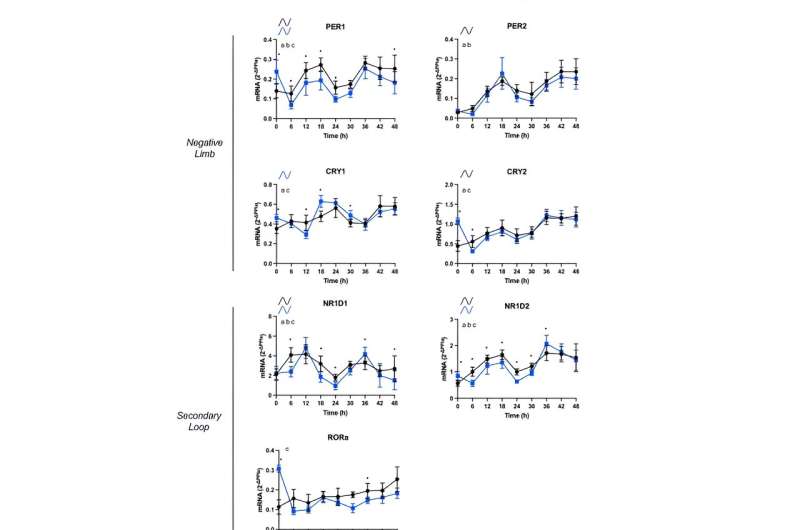This article has been reviewed according to Science X's editorial process and policies. Editors have highlighted the following attributes while ensuring the content's credibility:
fact-checked
proofread
Effects of resveratrol on circadian clock gene expression in young and older human cells

A new research paper was published on the cover of Aging titled, "Effects of resveratrol on in vitro circadian clock gene expression in young and older human adipose-derived progenitor cells."
Observational studies in preclinical models demonstrate age-related declines in circadian functions. In this new study, researchers Sophie G.C. Kapar, Maria F. Pino, Fanchao Yi, Miguel A. Gutierrez-Monreal, Karyn A. Esser, Lauren M. Sparks, and Melissa L. Erickson from AdventHealth and the University of Florida hypothesized that age would be associated with declines in function of cell-autonomous circadian clocks in human tissue.
"Accordingly, we cultured adipose progenitor cells (APCs) from previously collected white-adipose tissue biopsies from abdominal subcutaneous depots of young (Age: 23.4 ± 2.1 yrs) vs. older female participants (Age: 70.6 ± 5.9 yrs)," the authors write.
Using an in vitro model, the researchers compared rhythmic gene expression profiles of core clock components as an indicator of circadian oscillatory function. They observed consistent circadian rhythmicity of core clock components in young and older-APCs. Expression analysis showed increased levels of some components in older-APCs (CLOCK, CRY1, NR1D1) vs. young.
The team also investigated resveratrol (RSV), a well-known longevity-enhancing effector, for its effects on rhythmic clock gene expression profiles. They found that RSV resulted in gained rhythmicity of some components (CLOCK and CRY), loss of rhythmicity in others (PER2, CRY2), and altered some rhythmic parameters (NR1D1 and NR1D2), consistent in young and older-APCs.
The observation of detectable circadian rhythmicity retained in vitro suggests that the oscillatory function of the cell-autonomous core clock in APCs is preserved at this stage of the aging process.
"RSV impacts core clock gene expression in APCs, implicating its potential as a therapeutic agent for longevity by targeting the core clock," the researchers conclude.
More information: Sophie G.C. Kapar et al, Effects of resveratrol on in vitro circadian clock gene expression in young and older human adipose-derived progenitor cells, Aging (2024). DOI: 10.18632/aging.205292



















